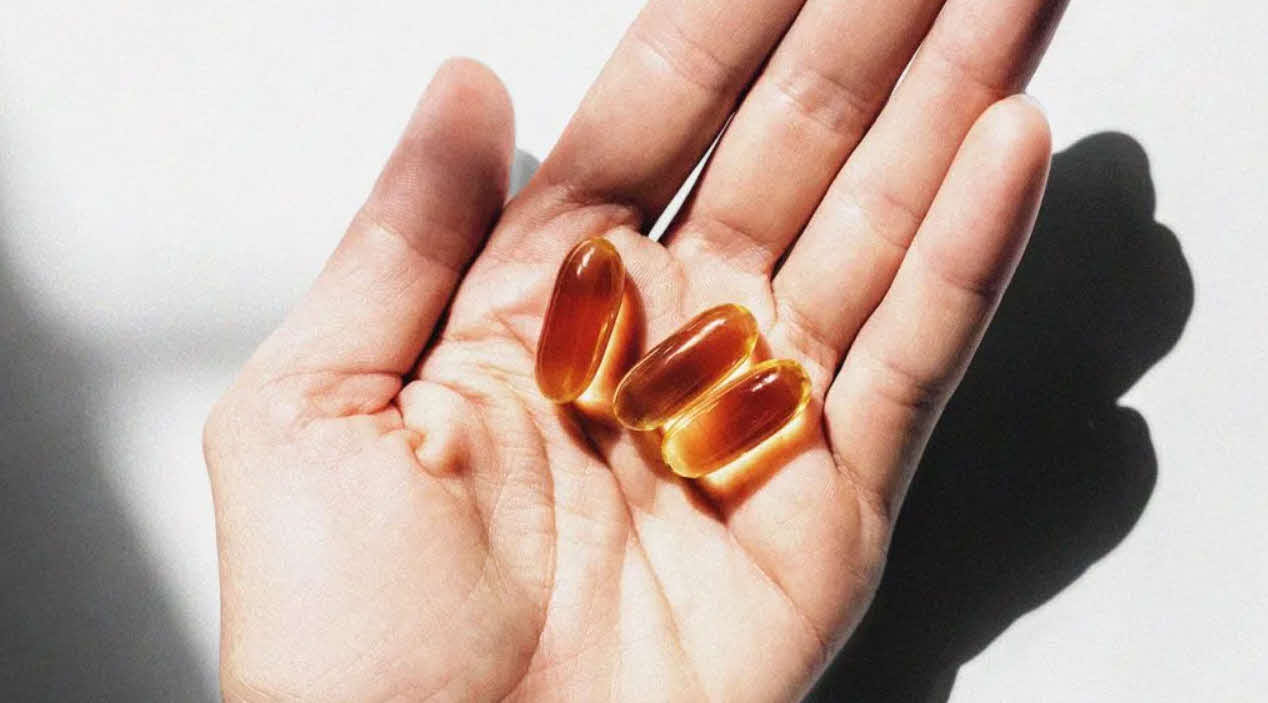
One very prominent online physician has pioneered the idea that krill oil is superior to fish oil for providing humans with much needed and often lacking DHA and EPA omega-3 fatty acids. He claims that krill oil:
- is more easily absorbed into our cells (bioavailability) than fish oil,
- is more effective for high cholesterol, high triglycerides, and PMS,
- is more environmentally friendly and more sustainable than fish oil,
- and that fish oil is dangerous due to toxic levels of mercury and other contaminants.
In the interest of truth, however, let’s review the available science on krill oil and see if it stands up to scrutiny.
Is Krill Oil Better Absorbed Than Fish Oil?
The physician in the infomercial (who also sells krill oil on his website) states that krill oil is better absorbed than fish oil because it’s in a phospholipid rather than triglyceride form.
First let’s agree that the human body is not adapted to eating krill because krill (a small shrimp-like crustacean) are mostly found either in Antarctica or in deep waters below 3,000 ft. Given the difficulty of attaining krill, our hunter-gatherer ancestors would have always obtained DHA and EPA omega-3s from much more convenient food sources like wild game meat or fish (the triglyceride form).
This means that humans are genetically adapted to consuming DHA and EPA in triglyceride form and will be better able to extract nutrients from this form. This is also why natural fish oils are preferable to those which have been processed or altered in any way.
“But this doctor says he has scientific research to validate his claims!”
Yes, if you call a study conducted on mice after having their gall bladders surgically removed “valid” research (1). By the way, animals need bile from the gall bladder to absorb triglycerides, so once the gall bladder is removed, the ability to absorb triglycerides properly is also removed. So of course the phospholipid form would be better absorbed in this case!
To make matters worse, the researchers used neither krill oil nor fish oil in the study! They used soybean oil!!! How exactly does one publicly and ethically claim that krill oil is superior to fish oil in humans from a study with no krill oil or fish oil done on mice with no gall bladders?
The fact is that peer-reviewed literature proves that humans absorb fish oil perfectly well. After all, we’ve been consuming DHA and EPA in the triglyceride form since the beginning of the human race.
Is Krill Oil More Effective Than Fish Oil for High Cholesterol & High Triglycerides?
When it comes to whether or not krill oil is more effective for high cholesterol and high triglycerides than fish oil, ALL the available evidence is based on ONE study funded by a krill oil company (2).
This study has never been replicated and was funded entirely by companies selling krill oil.
For this so-called “study,” one group took 2-3 grams of krill oil every day (which is 2-3 times the recommended daily dose). A second group took 1.5 grams of krill oil per day (1.5 times the recommended dose). And a third group (the fish oil group) took 120 milligrams of DHA and 180 milligrams of EPA per day (less than 20% of the amounts recommended by current research).
So basically researchers administered twice the daily dose of krill oil and 20% of the recommended serving of fish oil and then claimed that krill oil was superior.
Is Krill Oil More Effective for PMS Than Fish Oil?
There seems to be a pattern here, because this claim is also based on one study involving 70 people (3).
36 subjects were given double the recommended dose of krill oil while 34 were given less than a third of the recommended dose of fish oil. Even with the large variance of dosages in favor of krill oil, there were no significant differences observed between the two groups for weight gain, abdominal pain, or swelling.
There also was no control group which is a major scientific flaw. Control groups exist to ensure that results are not due to the placebo effect, researcher bias, or accidental error. Here both groups were given something that might help them which makes the results invalid.
The lead researcher was also the VP of the krill oil company.
Strangely, these test subjects were not given the supplements for the entire 90 day trial. They received two capsules per day for 30 days, then 2 capsules per day for 8 days prior to menstruation, and then 2 capsules for 2 days during menstruation. This is not supplementation. This is an attempt at treatment which will always fail. Previous research has shown that the benefits of fish oil for PMS were achieved when fish oil was taken on a regular daily basis.
Is Krill Oil Better at Providing Proper Amounts of DHA and EPA than Fish Oil?
This is all a diversion anyway. The value of an omega-3 supplement cannot be determined by how much it lowers cholesterol, triglycerides, symptoms of PMS, or how easily it is absorbed by mice with no gall bladders, because DHA and EPA omega-3 fatty acids are essential nutrients for the human species and NOT a treatment for disease. Those with normal cholesterol and triglyceride levels, along with every other human on planet Earth regardless of their symptoms or lack thereof, need omega-3s to be healthy.
The fact remains that krill oil, when taken as recommended, does not provide sufficient amounts of DHA or EPA omega-3s. There will still be a deficiency of essential fatty acids in these folks regardless of whether or not it changes or prevents disease symptoms – a deficiency that could very well lead to an exhausting list of health problems.
There is a huge body of evidence, actually thousands of studies conducted by independent 3rd parties with no affiliations to fish oil companies, that shows the benefits of fish oil supplementation. Thousands of studies against the 3 mentioned above which were all funded by a krill oil manufacturer? That’s a no-brainer.
I guess that’s why they needed an infomercial.
Fish oil simply provides a much higher quantity of DHA and EPA per serving than krill oil. Taking krill oil as recommended only provides less than one-tenth the amount of DHA and EPA humans require for sufficiency.
What About Claims That Fish Oil Oxidizes And Goes Bad?
The krill oil pushers assert that antioxidant levels in fish oil are lower than krill oil which allows faster oxidation and spoilage.
This isn’t a bad marketing strategy but evidence just does not support this claim (they don’t offer any in the infomercial, either). What is in question here really is the quality of the supplement.
The truth is that cheaply made fish oils can indeed oxidize, but it’s due to poor processing, not an inferior form of omega-3s.
One of the most important factors when choosing a fish oil supplement is quality, not price.
There are tests which can detect oxidation and contamination (mercury) levels. A reputable company will have those tests performed by a third party and the results posted for everyone to see.
The Issue of Sustainability and the Environment
Some important factors have to be considered before concluding that harvesting krill is a better choice ecologically – the most critical being that krill is a food source for a vast number of oceanic species. In reality, the ecological implications of harvesting krill are so devastating that the practice has been banned in several major oceans.
Conscientious fish oil manufacturers are aware of ecological concerns and vigilant with their safeguards. The best fish oil supplements are made from the remains of fish that have been harvested as part of the current “catch quota.” In other words, they produce their fish oils from fish remnants traditionally used as fertilizer or used in pet food.
There is an enormous percentage of this material available that is being discarded, so making fish oil from the scrapped remains of such omega-3-rich oily fish like herring, anchovies, and sardines is very environmentally responsible.
Where to Get a Quality Fish Oil Supplement
Given the available science, an honest comparison between fish oil and krill oil isn’t even possible. It appears that choosing krill oil as a source of daily omega-3 supplementation could only result from persuasion by clever marketing because the recommendation certainly isn’t based on reliable scientific evidence.
We feel it’s important to provide information about products we know are scientifically superior in quality and effectiveness – rather than abandon readers to sift through piles of unscientific opinions in search of quality products by themselves.
There are a few companies which manufacture supplements that meet our strict standards. As far as an omega-3 supplement is concerned, I believe there is only one clear choice, Innate Choice. They make the omega-3 supplement I take every day.
References:
(1) Werner et al. Treatment of EFA deficiency with dietary triglycerides or phospholipids in a murine model of extrahepatic cholestasis. Am J Physiol Gastrointest Liver Physiol 286: G822-G832, 2004.
(2) Bunea et al. Evaluation of the effects of Neptune Krill Oil on the clinical course of hyperlipidemia. Alternative Medicine Review, Dec 2004.
(3) Sampalis et al. 2003 Evaluation of the effects of Neptune Krill Oil on the management of premenstrual syndrome and dysmenorrhea. Altern Med Rev. 8 (2): 171-9.

Jennifer West is a health and wellness expert who provides information backed by science to help people live a healthier lifestyle. Her master's degree in nutrition science gives her an edge when writing about health, diet, and nutrition.

